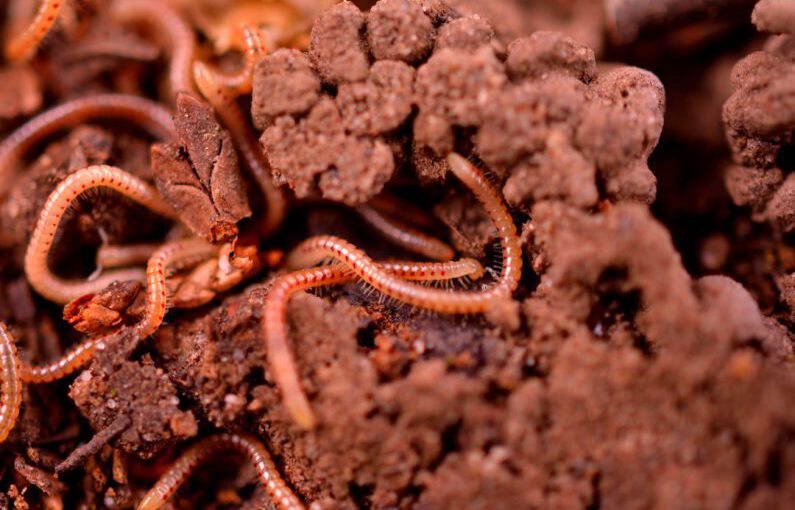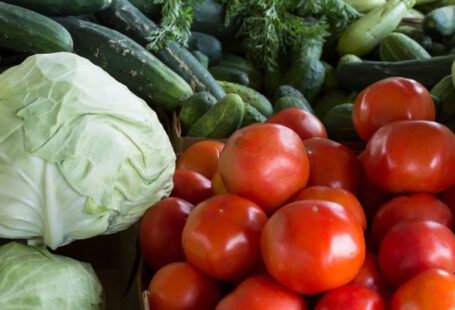Worms are often overlooked champions of soil fertility, silently working beneath our feet to improve the health and productivity of the land. These humble creatures play a crucial role in maintaining the balance of nutrients, enhancing soil structure, and promoting plant growth. Let’s delve into the fascinating world of worms and uncover the secrets of their contribution to soil fertility.
### The Soil Engineers
Worms are nature’s soil engineers, tirelessly burrowing through the earth and creating intricate networks of tunnels that aerate the soil. This process allows oxygen to penetrate deep into the ground, promoting the growth of beneficial soil microorganisms that aid in nutrient cycling. By improving soil structure, worms also help prevent compaction and waterlogging, ensuring optimal conditions for plant roots to thrive.
### Nutrient Cycling
One of the most significant contributions of worms to soil fertility is their role in nutrient cycling. As worms consume organic matter, such as dead plant material and microorganisms, they break it down into simpler compounds that are more readily available to plants. Through their digestive processes, worms convert organic matter into nutrient-rich castings, also known as vermicast or worm castings. These castings are a potent source of essential nutrients like nitrogen, phosphorus, and potassium, which are vital for plant growth and development.
### Enhancing Soil Fertility
Worm castings are often referred to as “black gold” due to their exceptional nutrient content and beneficial properties. These rich organic matter deposits not only provide essential nutrients to plants but also improve soil structure, water retention, and microbial activity. The slow release of nutrients from worm castings ensures a steady and balanced supply to plants, promoting healthy growth and increasing resistance to pests and diseases. Additionally, the presence of beneficial microorganisms in worm castings further enhances soil fertility by supporting plant nutrient uptake and overall soil health.
### Vermicomposting
Vermicomposting, the process of using worms to decompose organic waste and produce nutrient-rich vermicast, is a sustainable and eco-friendly practice that benefits both the environment and agriculture. By harnessing the natural abilities of worms to break down organic matter, vermicomposting reduces waste sent to landfills, mitigates greenhouse gas emissions, and creates a valuable resource for improving soil fertility. Home gardeners, farmers, and even urban dwellers can easily set up vermicomposting systems to recycle kitchen scraps, garden waste, and other organic materials into nutrient-dense soil amendments.
### Resilience and Sustainability
The presence of worms in the soil is a sign of a healthy and thriving ecosystem. Their activities contribute to the resilience and sustainability of agricultural practices by reducing the reliance on synthetic fertilizers and promoting natural soil processes. By fostering a balanced soil environment through their work, worms help create a self-sustaining system where plants can access the nutrients they need without harmful chemical inputs. This not only benefits crop yields but also preserves the long-term fertility of the land for future generations.
### The Circle of Life
In the intricate web of life that exists in the soil, worms play a vital role in connecting different components and driving the cycle of nutrients. From breaking down organic matter to enriching the soil with valuable nutrients, worms facilitate a harmonious relationship between plants, microorganisms, and the environment. By nurturing the soil through their actions, worms contribute to the overall health and productivity of ecosystems, highlighting the importance of these unsung heroes in sustaining life on Earth.
### Embracing the Underground Allies
As we explore the intricate interactions that shape soil fertility, it becomes evident that worms are essential allies in maintaining the delicate balance of the earth beneath our feet. By recognizing and appreciating the valuable role of worms in enhancing soil health and productivity, we can strive to create sustainable agricultural practices that prioritize the well-being of the soil and the environment. So, let’s embrace our underground allies and work together to nurture the living soil that sustains us all.





